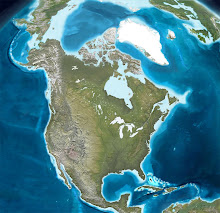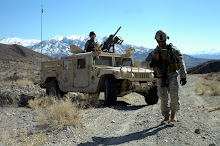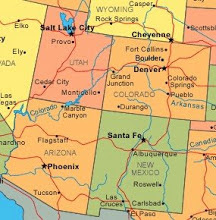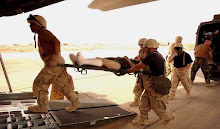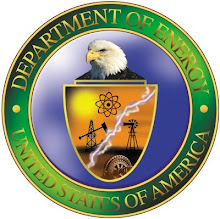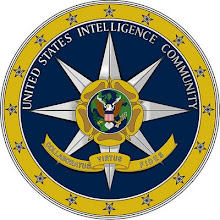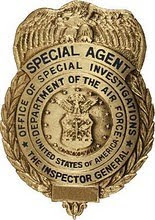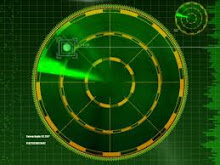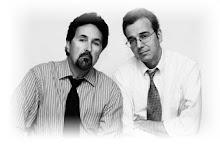By Steve Hammons
Greater understanding and use of “transcendent power” can result in the optimization of hard power, soft power and what has been referred to as smart power.
What is transcendent power?
In 2001, a Navy SEAL officer submitted a research paper as part of his studies at the Marine Corps War College. The paper was submitted in partial fulfillment of the requirements for the Marine Corps War College, Marine Corps University, Marine Corps Combat Development Command, Quantico, Virginia.
The SEAL, then-commander L.R. Bremseth, had conducted interviews and looked into U.S. defense and intelligence community activities on human perceptual abilities and unconventional intelligence acquisition.
Bremseth’s paper, “Unconventional Human Intelligence Support,” looked at “transcendent and asymmetric warfare implications” of leading-edge and emerging research and development regarding human perception and consciousness as well as innovative intelligence acquisition methods.
In his report, Bremseth wrote, "The real challenge for the United States is not asymmetric warfare, but rather what this writer calls transcendent warfare, the ability to conceptualize and subsequently actualize an entirely new form of warfare that transcends all previously known models."
UNCONVENTIONAL, ASYMMETRIC APPROACHES
He explained, "Granted, transcendent warfare reflects Zen-like qualities that elude definition thereby making the above challenge more difficult."
"Non-linear/multidimensional and abstract/metaphysical are tentative terms that convey this concept, however, ascribing to a pat definition may in fact signal inability to comprehend the concept altogether," he wrote.
In addition, Bremseth made general and specific recommendations in the paper and pointed out that, "... transcendent and asymmetric warfare necessitate and exemplify proactive approaches that envision these efforts as opportunities ... for the exploration and advancement of human and/or institutional potential. Such a readjustment in thinking will require dynamic, visionary leadership ..."
He suggested that we would be wise to, "Explore a myriad of phenomena having potential military applications with the goal of developing transcendent and asymmetrical warfare approaches."
Bremseth’s paper was written in the context of a military advanced education institution, and, of course, he was an officer of an elite special operations force. As a result, his report is oriented toward defense challenges and opportunities.
At the same time, the idea of transcendent power can be applied to a wide and deep range of activities that involve domestic and international efforts, public diplomacy, humanitarian operations, peace and security operations, human development projects and similar endeavors.
The ideas of transcendent warfare and transcendent power are directly tied to human psychology and human consciousness. There are both conventional and unconventional aspects.
Because human behavior flows from human psychology and consciousness, when we look at leading-edge and emerging research in these fields, we can understand more about ourselves and others. We can learn more about the human race.
This, in turn, can assist us in recognizing solutions and constructive approaches to many kinds of challenges.
WIDER, DEEPER APPLICATIONS, IMPLICATIONS
In addition, as we explore and fine-tune our understanding of transcendent power, the U.S. can be positioned as a leader in this area. This leadership benefits all of humanity.
We can deploy information, communication, education and training about various elements of transcendent awareness.
It is probable that by enhancing transcendent awareness, progress can be made in many areas of human activity including peace and security, energy resources, agriculture and food supplies, natural resources conservation, education, poverty mitigation, health care and medical research as well as scientific research of all kinds.
Although transcendent awareness is undoubtedly emerging on its own to some degree, we can help this process along by being proactive.
We can develop and implement activities that conduct research related to transcendent power and how this information and understanding can be optimized for U.S. national interests and to benefit people internationally.
For example, project components could include open-source research and information acquisition, analysis of this information and then the development of communication, education and training approaches.
There probably is potential for great synergy in these kinds of efforts that could have far-reaching constructive outcomes for the U.S. and the international community.
skip to main |
skip to sidebar

In the past 30 days, readers from approximately 40 countries or territories using about 20 languages visited the Joint Recon Study Group site.

To see more articles, scroll down the right-side column.

Steve Hammons

Articles from the Joint Recon Study Group site and Transcendent TV & Media site are included.
The Joint Reconnaissance Study Group is the San Diego-based, combined-service/agency, research-and-activities team in my novels "Mission Into Light" and sequel "Light's Hand." This site contains information of interest to the JRSG.
Home page: Joint Recon Study Group site
Readers from around the world visit this site.

In the past 30 days, readers from approximately 40 countries or territories using about 20 languages visited the Joint Recon Study Group site.
April 2021 threat alert: ‘Force protection’ for our troops now the responsibility of all Americans
First responders must deal with society’s problems, shortcomings, injustices every day
Could some UFOs be linked to Native American 'white stone canoe' legends, stories?
Wildland firefighter basic training available at community colleges, tech schools, training centers
‘Boomer remover’ coronavirus is bigger threat to WWII generation that saved the world
‘Black swan’ events that aren’t: Coronavirus, climate emergency, unidentified aerial phenonema
Reagan’s complete 1987 UN message on ‘alien threat’ overlooked: Grave danger here, now
Was Reagan briefed about UFOs and original ‘Day the Earth Stood Still’ movie?
My military draft lottery number was #165 during final Vietnam War years
“Keep On The Sunny Side,” by The Whites, from movie O Brother, Where Art Thou?”
Living along Ohio River for centuries, Native Shawnee called it ‘Kiskepila Sepe’ – ‘Eagle River’
Native American words around us: States, towns, rivers, lakes, terrain, plants, animals, military
Athens County, Ohio, was key spot when colonists, Redcoats fought Shawnee in 1774 battle
1787 Northwest Ordinance set course for Ohio, Indiana, Illinois, Michigan, Wisconsin, Minnesota
Smallpox-tainted blankets were 1763 bioweapon on northern Appalachian Mountains frontier
Diana Krall performs “Maybe You’ll Be There" live in Paris with Paris Symphony Orchestra 2001.
Books to read in 2021? Novels "Mission Into Light" and the sequel "Light's Hand"
Novel excerpt: Renew, prepare America with ‘Urgent Response Group’ for teens, young adults
Diana Krall performs “I Get Along” live in Paris with Paris Symphony Orchestra 2001.
Steve Tyrell sings “Give Me the Simple Life.”
Diana Krall performs “Love Letters” live in Paris with Paris Symphony Orchestra 2001.
Visit the article archives!

To see more articles, scroll down the right-side column.
Novel "Mission Into Light" overview on Amazon
Novel "Light's Hand" overview on Amazon
Adventures of the Joint Recon Study Group: Overview and synopses of activities and operations
Key chapter overviews: Points of interest in the novel "Mission Into Light"
Key chapter overviews: Points of interest in the novel "Light's Hand"
Multimedia rights available
English and foreign-language book rights, audio book and e-book rights for "Mission Into Light" and "Light's Hand" are available. Movie and TV rights are available.
I'm seeking agent representation for these works and rights.
Please contact Steve Hammons for more information at hammons55@gmail.com.
Feature film screenplay
I completed a feature film screenplay in 2006 based on “Mission Into Light” and “Light’s Hand” combining key elements of both novels.
The screenplay takes audiences into the adventures and discoveries of the Joint Recon Study Group and the relationships among team members, friends and associates as they explore leading-edge research and emerging transcendent developments.
I'm seeking agent representation for this screenplay.
.........................
I also wrote a TV series pilot script based on "Mission Into Light" and "Light's Hand" story. I'm seeking agent representation this script.
About the Author

Steve Hammons
About the Author
I was born and raised in southwestern Ohio near the Kentucky and Indiana borders, then went to college at Ohio University in the southeastern Appalachian region of the state near West Virginia.
I graduated with a dual major in communication (journalism focus) and health education (psychology focus) with a minor in pre-law.
Ohio U. is home to the respected Scripps College of Communication and E.W. Scripps School of Journalism.
I also completed two graduate-level courses in guidance counseling theory and method at Ohio U.'s College of Education, School of Applied Behavioral Sciences and Educational Leadership.
At the end of my undergraduate education at Ohio University, I moved to the beautiful American Southwest where I applied my education, continual training and and ongoing experience to related professional fields such as health care, journalism and special research areas.
My novels "Mission Into Light" and the sequel "Light’s Hand" are available in e-book and 6"x9" paperback from most online booksellers worldwide.
Readers review metaphysical-military-intelligence adventure novel ‘Mission Into Light’
My articles on DoD CultureReady blog, Defense Language and National Security Education Office
Transcendent TV & Media site
Past articles: Scroll down the right-side column for more articles.

Articles from the Joint Recon Study Group site and Transcendent TV & Media site are included.
New films, TV series, books tell stories of ‘Ohiyo’ River Appalachian mountain region
Hillbillies, pioneers and UFOs: Current major media projects explore southern Ohio
Well-known ‘Mothman’ case also about dedicated local journalist, Native history?
Film experts, fans celebrate rediscovery of Appalachian story ‘Spring Night Summer Night’
'Hillbilly' J.D. Vance, columnist Clarence Page find common ground in southwest Ohio roots
‘Phoenix lights’ UFO linked to multiple incidents around four-state Colorado Plateau?
UFOs, odd phenomena reported on perimeter of Colorado Plateau
Theory about 37th parallel and UFOs sparked book, TV shows, film concept
Sketchy dimensions: UFO investigations reveal need for caution, potential for beneficial discovery
Can UFO-acquired technologies help the U.S. economy?
Many Americans have Cherokee in the family tree
Americans with Cherokee roots can't rely on government bureaucracies to define them
Government-approved Cherokees don’t tell whole story?
Does tribal government politician speak for all Americans with Cherokee ancestry?
‘Official Cherokees’ disrespecting mixed-ethnicity Americans?
Could ‘Hillbilly Elegy’ author J.D. Vance have Appalachian Cherokee ancestry?
Journalism’s dilemma: Covering weird science
Movie ‘Sedona’ explores metaphysical mysteries, Nature’s beauty, human heart
Novel excerpt: Insight, understanding not always found in official reports, documents
Novel excerpt: From Sedona to Heaven – What is the dimension we call ‘Heaven?’
Interest grows in healthy aging, anti-aging, reverse-aging, transcendent aging
Analysis: Research company involved with UFOs opens up about activities
Startup company researching advanced tech, UFOs gives updates during Q&A
Leverage US resources to understand unknown objects encountered by Navy, defense expert says
US Navy UFO encounters: Space scientists speculate on ‘first contact’ with visitors
UFOs in the heartland: New movie, ‘Blue Book’ TV series set in southwestern Ohio
Year of UFOs, 1952, may play role in Disney movie ‘Tomorrowland’
UFO situation awareness: Phoenix conference hosts scientists, researchers, media, public
Appropriate security on UFOs probably 2-way street
Roswell was ET crash, says ex-CIA officer – what’s been going on since 1947?
Alleged briefing to Pres. Reagan: Original ‘Day the Earth Stood Still’ was UFO acclimation?
Beyond UFOs and extraterrestrials: Human consciousness
Journalism in media mix: New shows ‘Chasing UFOs,’ ‘Spacing Out’ help prepare public
Further UFO disclosure requires readiness, teamwork, education, intelligence
Disclosure, acclimation, security work together on UFO, ET challenges
Up to speed on UFOs and intelligent visitors? Revised ‘A.D. After Disclosure’ book released in May
Authors Zabel, Dolan explore adjusting to UFO truths in new book ‘A.D. After Disclosure’
Blog Archive
-
▼
2009
(34)
-
▼
March
(8)
- Transcendent warfare, transcendent power have pote...
- UFOs and public safety: Firefighter manual explain...
- Transcendent power has public safety applications
- Wounded troops: DARPA project to regrow human tiss...
- Joint competency in transcendent power needed
- Transcendent power is natural resource for ARPA-E
- Exploring and deploying soft power, transcendent p...
- Transcendent power reshapes hard power, soft power...
-
▼
March
(8)




























